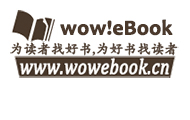
Africa's Freedom Railway: How a Chinese Development Project Changed Lives and Livelihoods in Tanzania
Editorial Reviews
Review
"The depth of material and analysis makes this essential for development studies and especially Chinese-African relations as the People's Republic expands involvement in the continent." — Choice
"This insightful account of transnational infrastructure cooperation will no doubt be welcome reading not only for academics and students, but most importantly for African leaders who have to make critical development choices for the benefit of their own people." — American Historical Review
"Africa's Freedom Railway is an insightful and well-informed book that bares testament to the experience of those Tanzanians and Chinese who worked on TAZARA railway as well as those whose lives have benefitted from its presence. By documenting the experience of those people affected by TAZARA, Monson effectively illustrates how the railway benefitted the majority of Tanzanians. Similarly, the book's wealth of sources enables Monson to write about contemporary Tanzania in a historical context, as TAZARA has shaped the present." — African Studies Quarterly E-Jrnl
"An important contribution to the expanding field of Sino-African Studies." — The China Quarterly
"Africa's Freedom Railway is a valuable addition to the social history of postcolonial Tanzania.. This book provides and excellent example to follow." — African History
"An interesting account of a remarkable chapter in the chequered history of Tanzania's development." — Tanzanian Affairs
"An extremely nuanced and textured history of negotiated interests that includes international stakeholders, local actors, and — importantly — early Chinese policies of development assistance." — James McCann, Boston University
"Blessedly economical and unpretentious.. no one else is capable of writing about this region with such nuance." — James Giblin, University of Iowa
Don't eat the oranges: they're laced with knockout drops. That's what Westerners hear, but there is far more to the Tanzania-Zambia Railway (TAZARA) story than expatriate anxieties. Built from 1970 to 1975 with assistance from the People's Republic of China, TAZARA was a major international development project embodying Third World solidarity during the Cold War. Designed to end African nations' dependence on the southern African line of rail and provide a secure outlet for landlocked Zambia's copper exports, the railroad became crucial to the transport needs and livelihoods of Tanzanians along its route. Despite fears of foreign sabotage, political struggles concerning TAZARA mostly protested closing of local stations in the 1990s. Drawing on 20 years of research in Tanzania, Monson (history, Carleton College) details TAZARA's planning, construction, and economic impact, along with changing settlement patterns, land use, and vegetation cover. The book's main shortcoming, literally, is brevity; it is mostly about Tanzania, and broadened coverage of China and Zambia would be welcome. Still, depth of material and analysis makes this essential for development studies and especially Chinese-African relations as the People's Republic expands involvement in the continent. Summing Up: Highly recommended. Academic and large public libraries, undergraduates and above. — ChoiceT. P. Johnson, University of Massachusetts, Feb. 2010
About the Author
Jamie Monson is Professor of History at Macalester College. She is author of Women as Food Producers in Developing Countries.
Book Description
Hardcover: 216 pages
Publisher: Indiana University Press (February 19, 2009)
Language: English
ISBN-10: 0253352711
ISBN-13: 9780253352712
Jamie Monson(Author)
未经允许不得转载:Wow! eBook » Africa’s Freedom Railway

